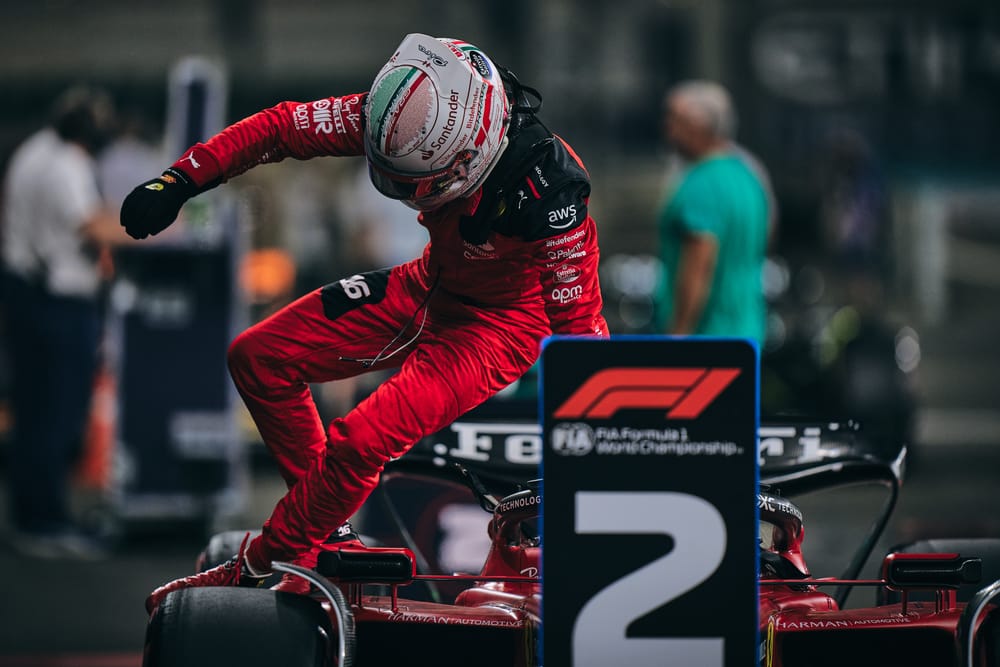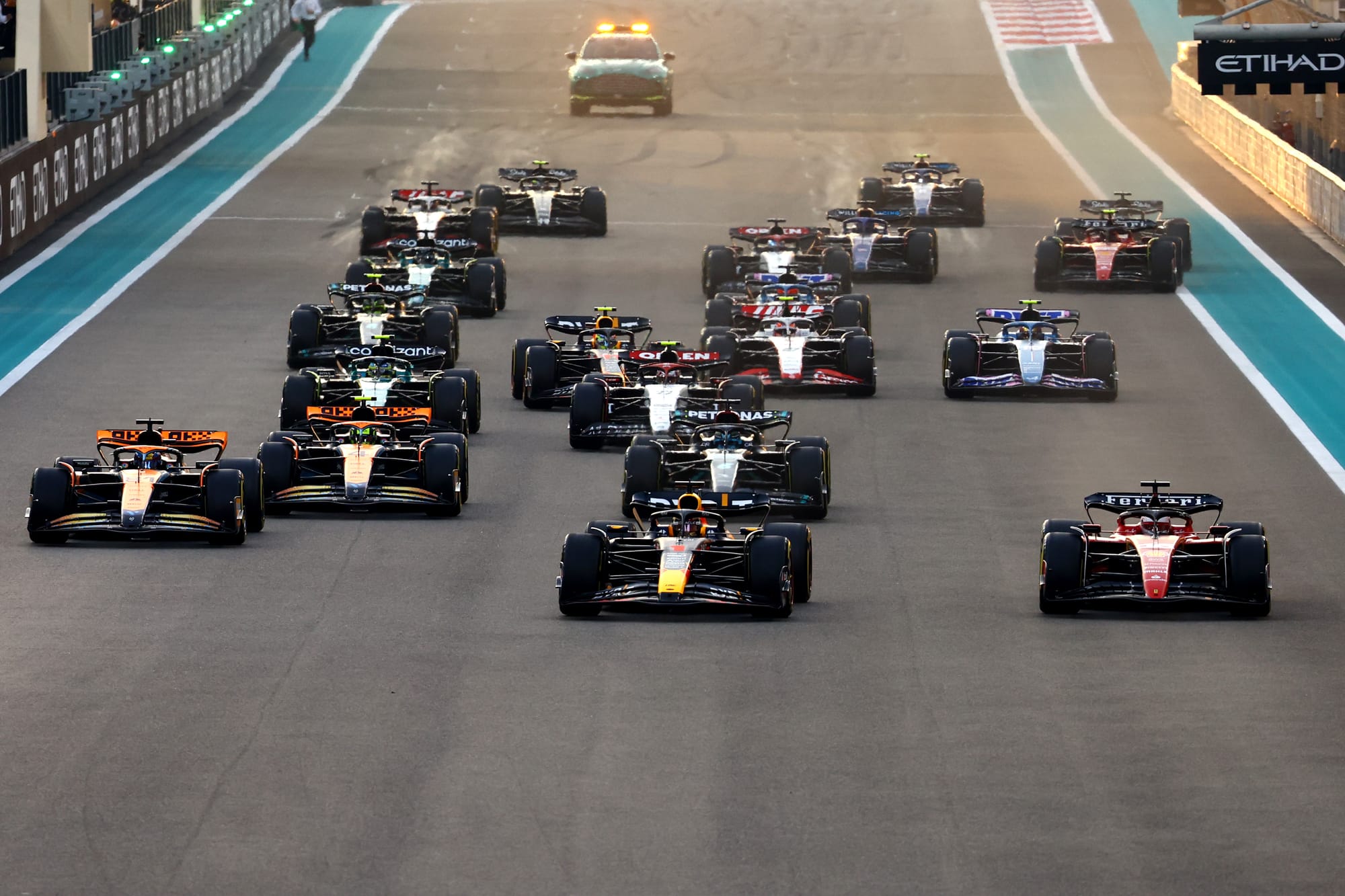Up Next

The immediate aftermath of Charles Leclerc's ultimately unsuccessful bid to engineer Sergio Perez in between himself and George Russell in the Abu Dhabi Grand Prix order featured variants of one question in particular: could Leclerc have gone further?
That point, with Leclerc seeking to win Ferrari second in the constructors' championship at Mercedes' expense, was debated almost immediately by the likes of respective Red Bull and Mercedes team bosses Christian Horner and Toto Wolff.
“It was the logical thing for Ferrari to do,” said Horner, “but they only half-did the job!
“Charles needed to hold off George a little more to get that extra second [to Russell, which would have given Perez the place].”
Wolff, meanwhile, praised Leclerc for not putting "the handbrake on" at the final corner in his attempts to get Perez - carrying a five-second penalty for contact with Lando Norris - to slot between him and Russell in the order, therefore allowing Ferrari to leapfrog Mercedes. And it was this element of sporting integrity and its place in Leclerc's decision-making that dominated much of the fallout.
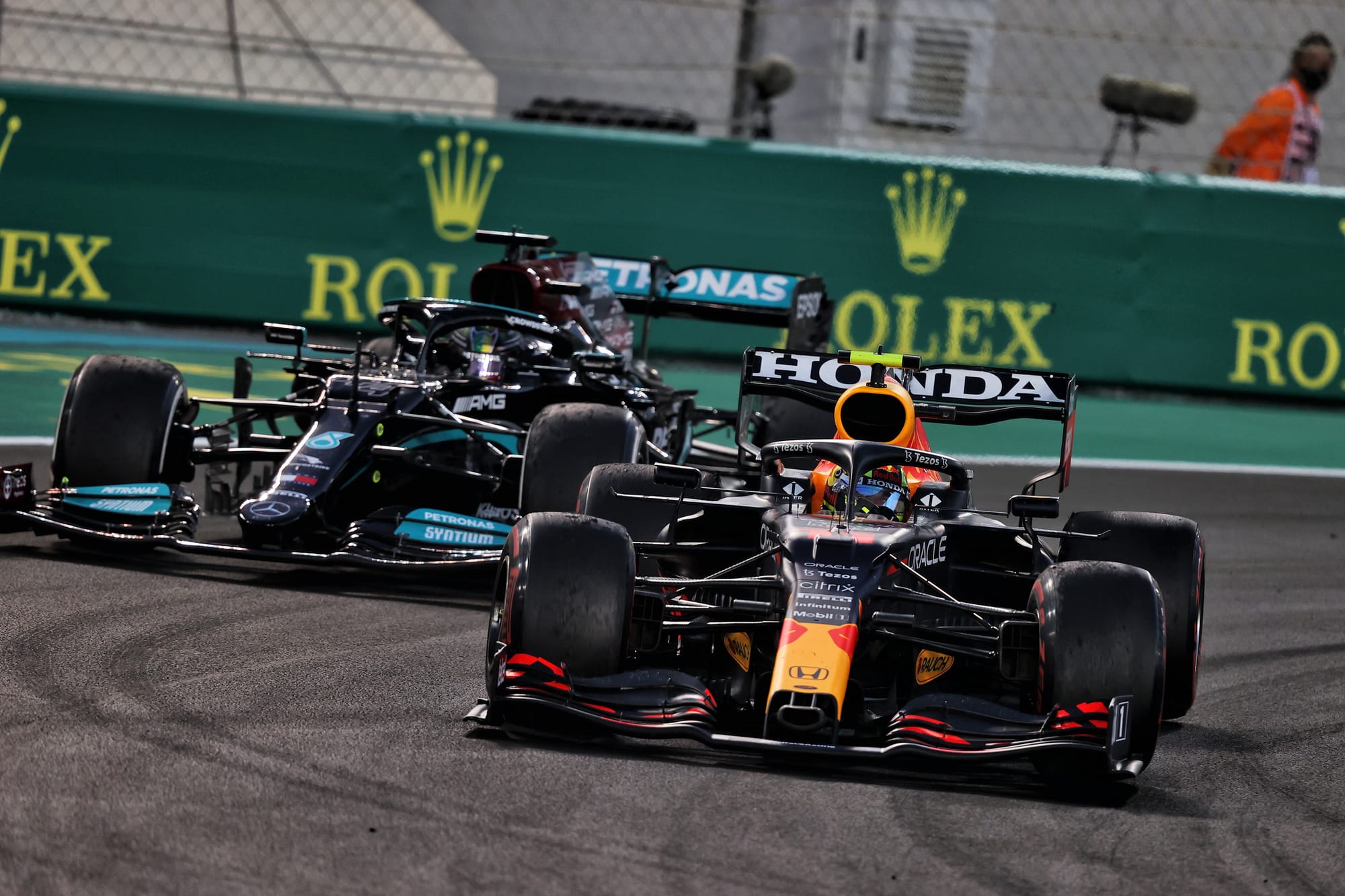
Does F1 worry about sporting integrity when it comes to holding rivals up? The obvious comparison was Perez's own defence against Lewis Hamilton in Abu Dhabi in 2021 when he was trying to help Max Verstappen win the title.
More recently, Carlos Sainz was praised for his tactical thinking on the way to winning in Singapore as he gave the pursuing Lando Norris DRS to ensure the bigger threat - the chasing Mercedes drivers - had less chance to come through.
And, of course, Hamilton himself backed Nico Rosberg into the pack for much of the Abu Dhabi race in 2016 as he tried to snatch the title.
In any case, whatever part behaving in a sportsmanlike manner did play in Leclerc's choices - and it seems fair to say it didn't go without thought considering he chose not to back Russell up - it was likely far outweighed by the common-sense side of the situation.
Knowing that Perez had passed Russell, Leclerc forfeited what had been a 2.3-second advantage at the start of the final lap by slowing down enough on the approach to the Turn 5 hairpin to allow Perez both to gain DRS for the run down the back straight and to move into second on the road.
It's at this point you ask whether Leclerc could have done more; with the long straight that followed, it’s possible Leclerc could have given Perez DRS while staying ahead on the run to the Turn 6/7 switchback, then done the same on the DRS-assisted run to Turn 9, before bailing out of the way of the Red Bull.
Providing Perez understood this tactic, he’d have had the benefit of both a few km/h extra in the wake of the Ferrari down to Turn 6/7 plus another full dose of DRS to blitz past Leclerc. Maybe it wouldn't have been enough, but it surely would have offered a better chance of finding the extra one second needed to drop Perez in that gap between Leclerc and Russell.
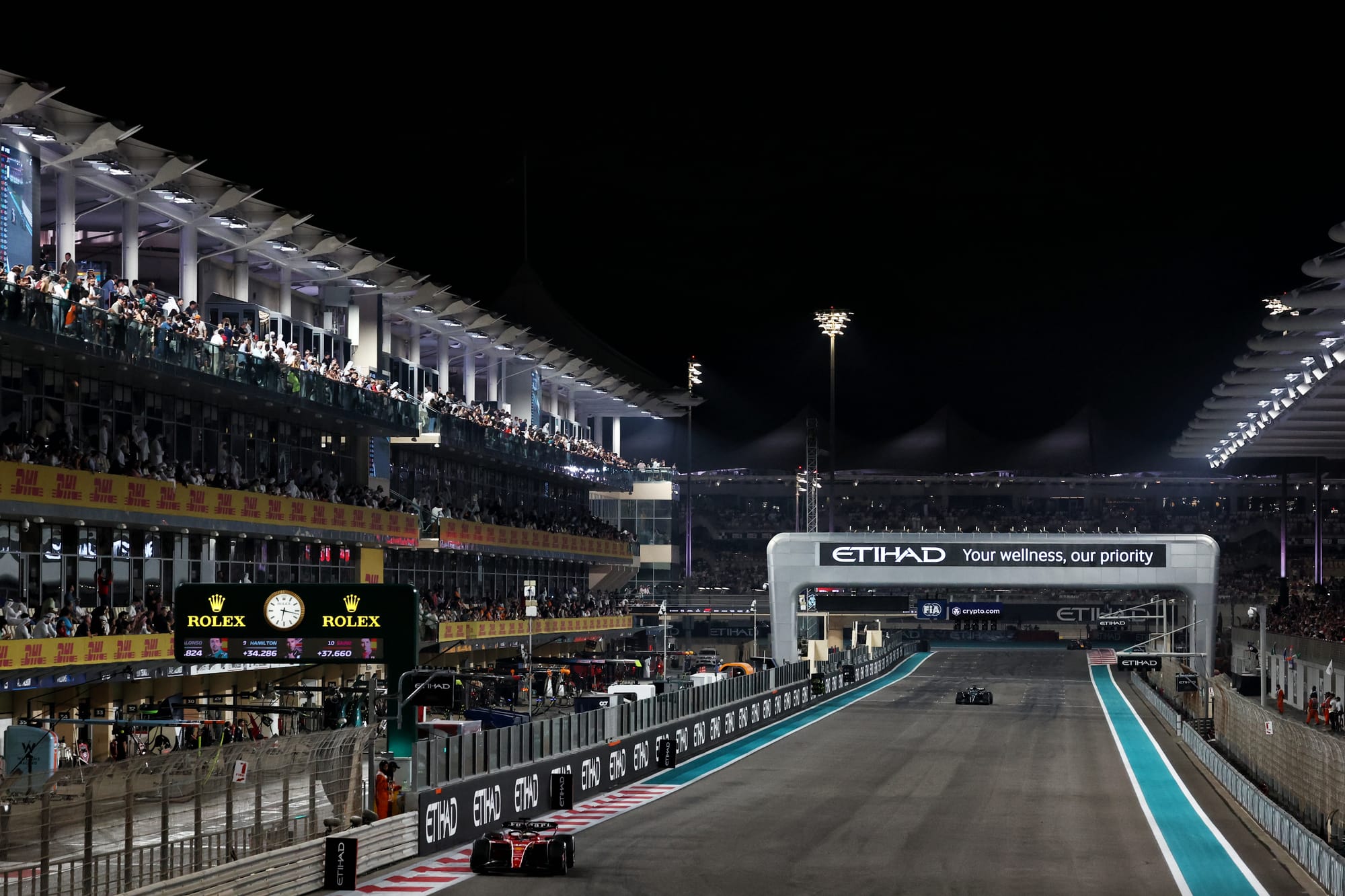
Whether that could have been enacted sooner too, given that Perez moved past Russell on lap 54 of 58, is also worth consideration. But doing so would have come with its own risks.
As Scott Mitchell-Malm pointed out on The Race Formula 1 Podcast, Ferrari was also acutely aware of Leclerc’s position and needing to ensure he finished second ahead of Russell in all of this. That’s perhaps why he waited until the last lap: to avoid Perez clearing five seconds on him, too.
Scott Mitchell-Malm on The Race F1 Podcast
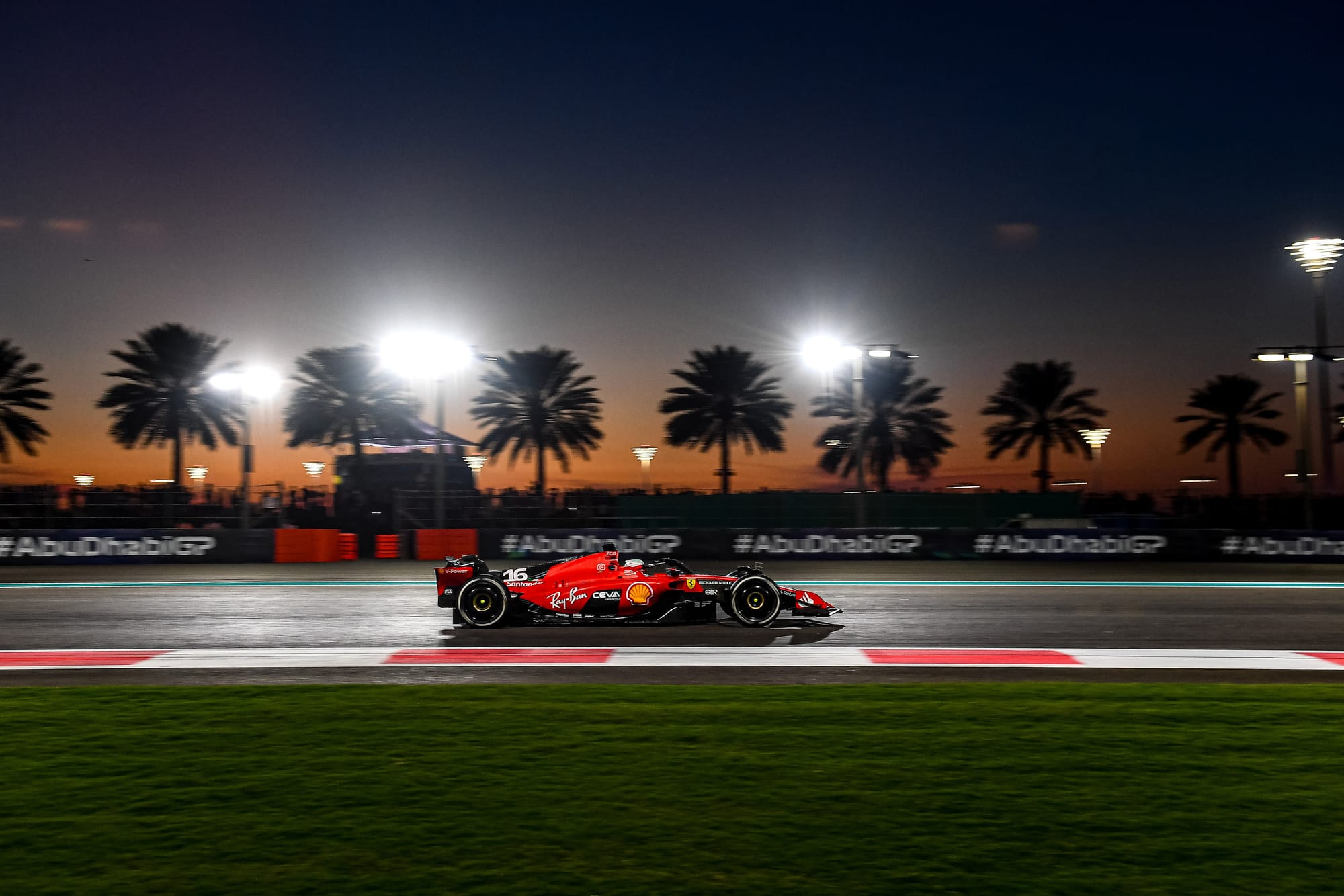
There was a matter of trying to judge how you make sure that Russell's five seconds behind Perez but you're not.
So there was also that competitive element in that Leclerc could very easily have got that wrong and screwed himself.
I'm sure Leclerc acted in the interest of fairness - he drew the line - but Ferrari team principal Fred Vasseur was also keen to point out that there was probably a bit of common-sense application there too.
Ultimately, Leclerc could only hold Russell up so much, because Leclerc needed to stay within five seconds of a Red Bull that was anywhere between 0.5s and 0.8s a lap faster at that stage of a race even while in traffic.
And what if Russell had found enough pace to actually make a move on Leclerc himself? That's not inconceivable - the Ferrari and Mercedes certainly seemed quite evenly matched on race pace -and it would have undone Ferrari's constructors' bid.
So ultimately, as Vasseur alluded to after the race, there was an element of common sense to what Leclerc did in his bid to ensure he and Ferrari stayed ahead. It wasn't just all about 'sportsmanship'.
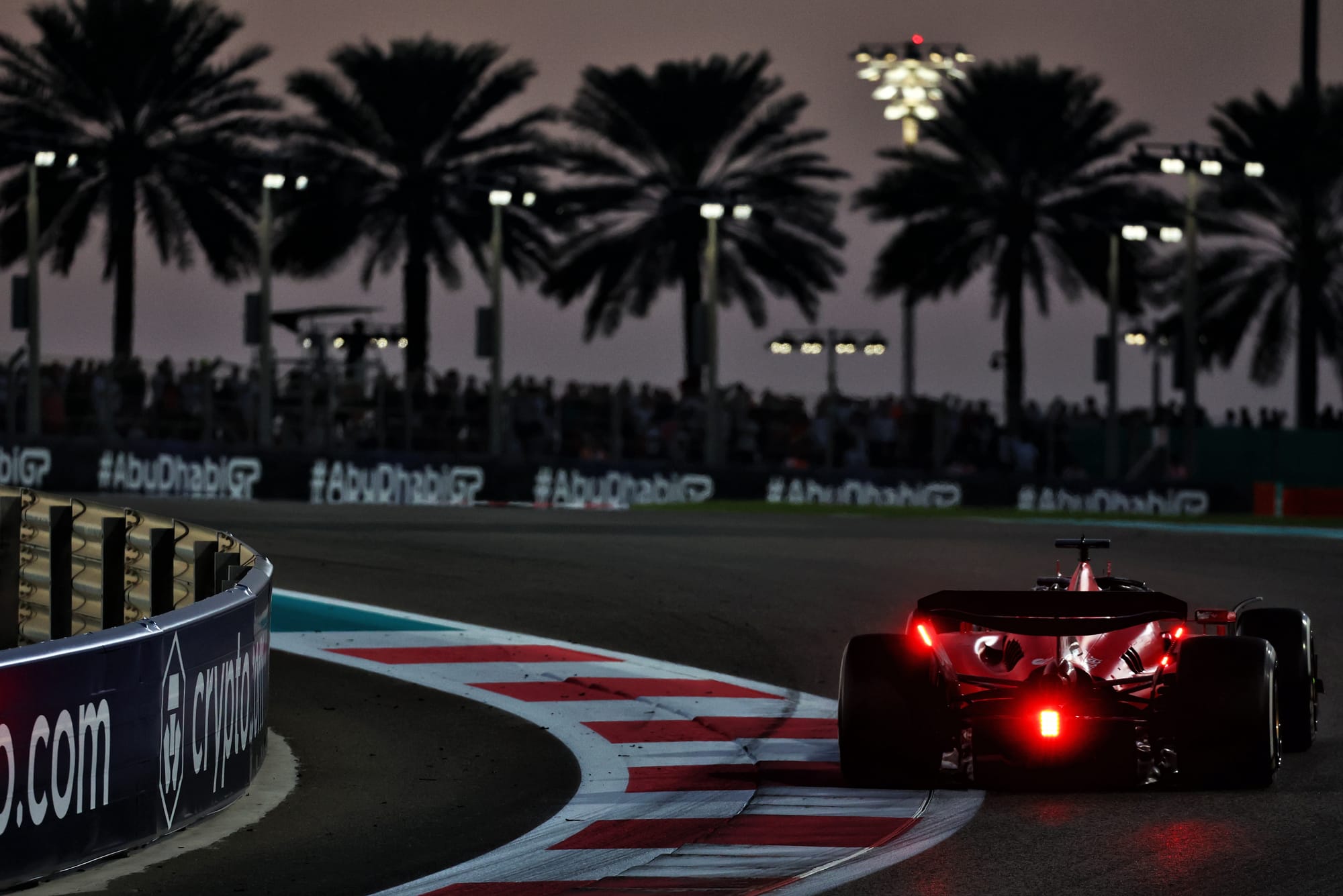
The fact Leclerc had the bandwidth to crunch a lot of this information while in the heat of the final laps of the race, and was looking to take matters into his own hands and engineer the result Ferrari needed - a trait team-mate Sainz, out of the reckoning in a point-less 18th in Abu Dhabi, is often credited with - while safeguarding his own second place and electing not to open a sportsmanship can of worms shows the level he was operating at.
But it's still possible that Leclerc could have gone a little further with his tactics - specifically in towing Perez for longer.
In any situation like this, the ‘what if’ is always fun to investigate. And just maybe an extra straight of DRS might have been the difference Perez, and therefore Ferrari, needed for a multi-million dollar payday.

